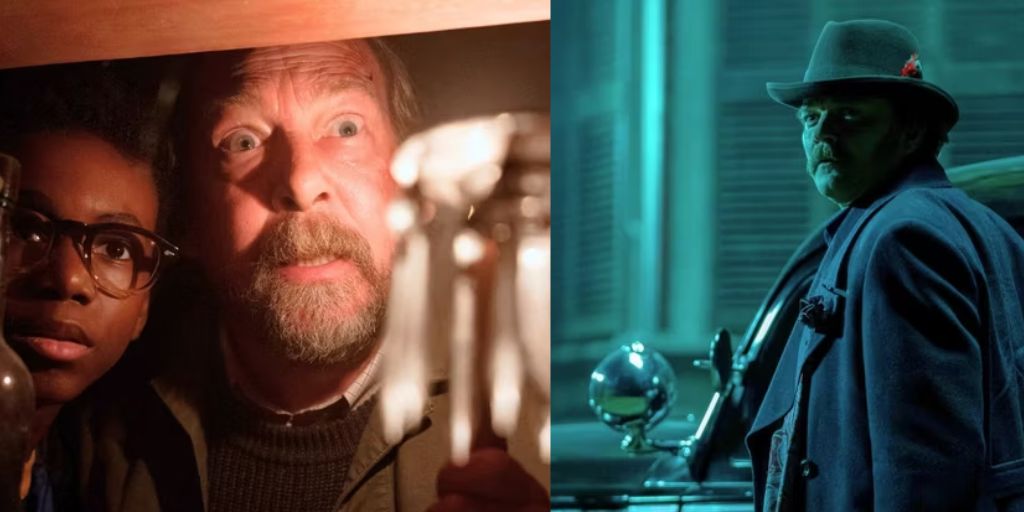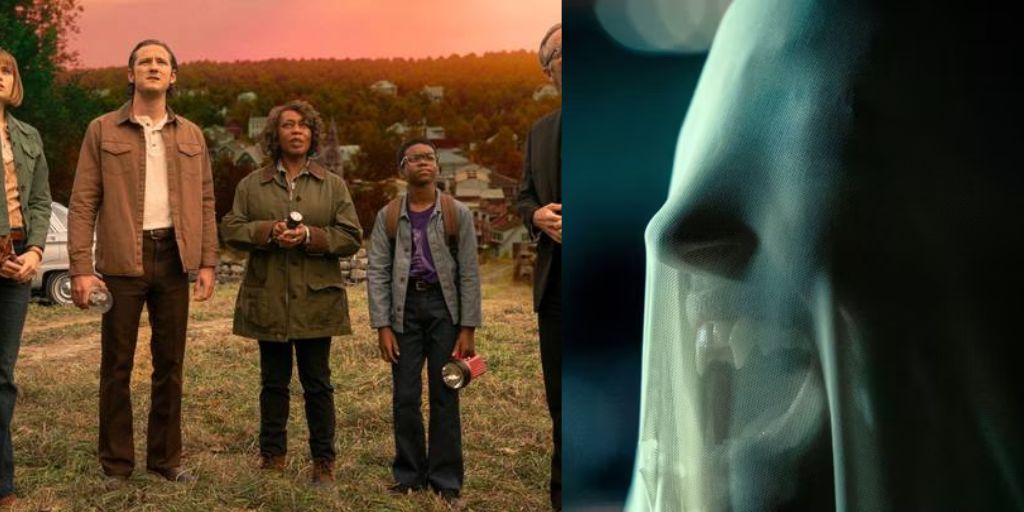The new film adaptation of Stephen King’s Salem’s Lot does not bring anything particularly new or original. It focuses on being a straightforward, traditional horror movie.
This will appeal to some horror fans, but it might explain why Warner Bros. decided to wait two years to release it, finally choosing to put it directly on Max after its premiere at Beyond Fest. The film is solid and dependable, but it does not stand out as a remarkable movie. This suggests that it might be okay for some films to go straight to streaming services.
Television seems to be a better place for adaptations of King’s second novel. Salem’s Lot—and I will skip the apostrophe that sometimes comes before the first letter—was first adapted into a popular TV miniseries in 1979. This miniseries was directed by Tobe Hooper and later shortened for international markets.
Then, in 1987, a theatrical sequel was made, but it did not have the same lasting impact and strayed from King’s original story. Another miniseries adaptation aired on TNT in 2004, starring Rob Lowe. So, the 2024 version of Salem’s Lot, written and directed by Gary Dauberman, is technically the first feature film adaptation of King’s novel.
However, many people might not get a chance to see it in theaters. Due to its shorter runtime, Dauberman has trimmed the story down to its essential parts. He captures the main events of the book while simplifying the characters’ development. The film also features a new ending that fits well with the story, and I believe King himself would be pleased with it.
What Is Salem’s Lot About?
In Salem’s Lot, the story centers on Ben Mears (played by Lewis Pullman from Top Gun: Maverick), a novelist who is one of many King characters that are writers. He returns to Jerusalem’s Lot, a small town in Maine where he lived as a child.
His reasons for coming back are unclear, but it seems he wants to confront some childhood trauma, as both of his parents died in a car crash when he was nine years old. He meets Susan (Makenzie Leigh), an aspiring real estate agent, and befriends Matthew, an older teacher played by Bill Camp, who was also in HBO’s adaptation of King’s The Outsider.
Ben becomes curious about the Marsten House, an eerie mansion in town, which is home to two new residents: the mysterious Barlow (played by Alexander Ward) and the sinister Straker (Pilou Asbæk from Game of Thrones), who have opened an antique store.
Meanwhile, an eleven-year-old boy named Mark (Jordan Preston Carter) has recently moved to town. He enjoys building model monsters at home but loses two friends to a strange blood sickness that starts spreading throughout the Lot.
Soon, it becomes clear that this is not a sickness but a curse—vampirism. Mark teams up with Ben, Susan, Matthew, a nearby doctor (Alfre Woodard), and a local priest (John Benjamin Hickey, who plays Father Callahan) to save their town from a vampire group led by the terrifying Barlow.
There are many different characters in this story, which is expected in a King tale that looks at one of his fictional towns from above. A miniseries could include most of these elements, but a movie under two hours needs to make choices.
Dauberman keeps all the main characters from the book, but this means that each character feels like a very simplified version of themselves. Their important traits are mentioned only briefly, if at all. There simply is not enough time to show Ben’s writer’s block, Father Callahan’s faith crisis, Mark’s love for horror, or other details in the original novel.
Because of this, Pullman has little to work with, and the audience does not get a strong lead character to connect with. Still, the actors do their best with the limited material. The characters may be sketches, but they are well-acted sketches.
Salem’s Lot Makes for a Fine Halloween Watch
Dauberman makes up for not being able to show the characters deeply by creating a visually appealing production that feels both classic and stylish, without being too flashy. Setting the story in the 1970s was a good decision, allowing for a drive-in movie theater—this adaptation’s biggest new element—to play an important role.
Dauberman, who has also worked on many films in the Conjuring universe and directed Annabelle Comes Home, has a strong visual sense and includes some clever scene transitions throughout the film. The vampires in the film look exactly how you would want them to.
They are deeply unsettling as they float and perch on rooftops with their eerie, glowing eyes. One major question was how Barlow would be portrayed, especially since the 1979 version diverged significantly from the book’s description. Dauberman wisely chose to update that iconic look instead of sticking to King’s original vision, which featured a more human-like villain.
There are other small details that make Salem’s Lot a solid choice for a spooky-season watch. I appreciate how the crosses shine bright white when used as weapons, pushing the vampires back like they have just been hit by a shotgun blast.

The story of Salem’s Lot has always been about the decline of small-town America, and enough of that message makes it into this adaptation. It will be hard for anyone to argue that this is the best version of the story. The vampire tropes it employs—crosses, holy water, etc.—are so familiar that they run the risk of feeling cliché.
Vampire myths have been changed and adapted many times since King’s book was published. Yet Dauberman’s film is good enough that I believe it will find an audience that enjoys a traditional take on vampire lore. It may also appeal to King fans who have followed this story since it first came out.
Salem’s Lot will start streaming on Max on October 3.




